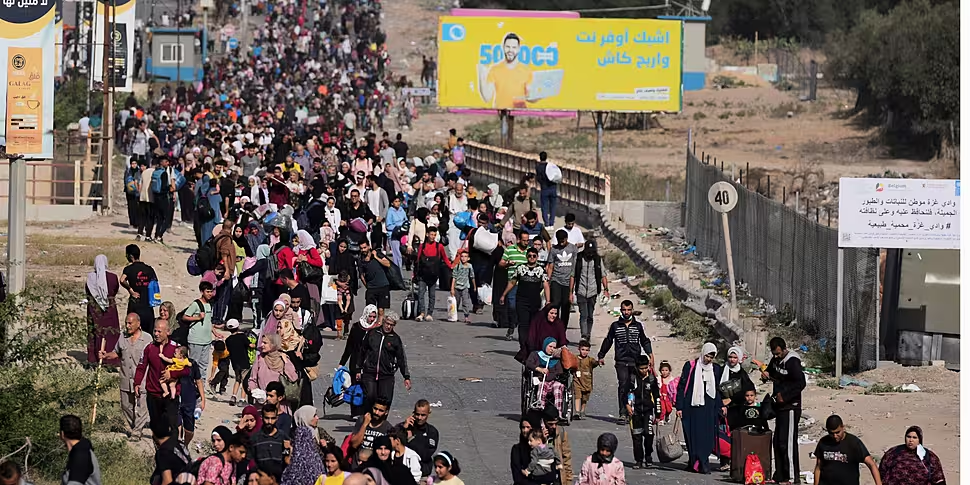While it is an important first step, the humanitarian pauses to be introduced by Israel in Gaza do not mean a ceasefire is incoming, a defence expert has said.
The White House announced yesterday evening that Israel would begin to implement four-hour “humanitarian pauses” in parts of the area to allow people to leave.
Israel said it had allowed movement along the Salah al-Din Road – the main highway that runs along the Gaza Strip – for the fifth day.
Former NATO analyst and army officer Patrick Bury said this decision has to be seen “as a step in the right direction”.
“Anything that can go some way to protecting civilian lives in this horrendous mess is a bonus,” he told Newstalk Breakfast.
“But as the Israelis were quick to point out, what they’re going to be doing essentially is opening a couple of humanitarian corridors.
“It's not going to be a temporary ceasefire... there might be some negotiations going on in the background to how this would actually end... but they want to keep going.”
Ceasefire
Mr Bury said Israel would need the release of all hostages taken by Hamas “before they will be willing to talk about a ceasefire”.
“I think there's a lot of diplomacy gone in to actually get this corridor,” he said. “you've got the Qataris, the US, it looks like the Egyptians, just to get this first step.
“But Israelis are keen to point out they’re not [ready for a ceasefire] yet.”
At least 10,812 Palestinians, including 4,412 children, have been killed in Israeli strikes on Gaza, according to the health ministry in Gaza.
'It's going to be months'
It’s hard to know how long the current conflict between Israel and Hamas will last, according to Mr Bury.
“Usually, Israel’s incursions into Gaza follow a scheme,” he said.
“Something happens, they respond heavily because they initially have some sympathy, they burn through that sympathy quickly.
“Eventually, public opinion and Israel meeting their own objectives, they start to pull back.
“So far, we’re still following that kind of scheme but we’re on a different level of destruction.
“It’s going to be months rather than years, but it's very difficult to call and of course you don’t what’s going to happen as a result of the incursion.”









